The common people pray for rain, health, and a summer that never ends. They don’t care what games the High Lords play.
-Ser Jorah Mormont (Iain Glen)
One of the most prominent themes in George R. R. Martin’s A Song of Ice and Fire is that of the plight of the common folk. A Game of Thrones begins with a feudal, medieval society ruled by noble houses, from Winterfell in the North to Sunspear in the South. A crumbling marriage between two such houses is holding the realm together but one only has to have a basic understanding of aristocratic oligarchy and inequity to know where the peasantry lies within this system of power. At the conclusion of A Game of Thrones and the first season of the television adaptation, that marriage is crumbled and a devastating execution lights the fuse of hatred and turns it into a full-fledged conflagration.
A Clash of Kings and season two chronicle the meat of what is eventually known as the War of the Five Kings. As battles rage throughout Westeros, ravaging the Riverlands in particular, no end to the war is in sight. War, as one imagines, is prohibitively expensive and the drainage on the crown’s coffers is certainly not going to be refilled by the Lannisters. The coffers are going to be filled by taxes upon the peasantry and the poor of King’s Landing.
A Storm of Swords and seasons three and four lead up to the two climaxes of the war, respectively. The slaughter of the Starks at the Red Wedding is arguably the conclusion of the primary military conflict of the war. The assassination of Tywin Lannister (Charles Dance) by his son Tyrion (Peter Dinklage) signals the end of the political arm of the war. The assassination in particular, as Cersei (Lena Headey) notes with such vehemence in “The Dragon and the Wolf,” left the Lannisters ripe for the picking. However, the ones whom are the most ripe for the picking are the common folk.
A prevalent thematic motif of stories that have significant aristocratic characters is the relationship that develops between the children of aristocrats and the children of the peasants who are hierarchically beneath them. In Winterfell, a young Arya Stark (Maisie Williams) finds herself without many companions her age who wish to pursue the interests of fighting. She finds a friend in Mycah (Rhodri Hosking), sparring with him on her journey south to King’s Landing before an encounter with Joffrey Baratheon (Jack Gleeson) takes a turn for the worst.
Joffrey is an entitled, sociopathic brat but he is an aristocrat. He proves his weight by relying upon his name, his wealth, and the power they provide. A young man of immense insecurities, Joffrey feels the constant need to assert his masculinity and poor Mycah pays the price for being a disposable peasant. He parlayed as an equal without claiming to be one but his fate was an initial proof that even the pretense of equality between a peasant and an aristocrat was dangerous.
When Theon Greyjoy (Alfie Allen) is tricked by Osha (Natalia Tena) to allow her to spirit Bran (Isaac Hempstead-Wright) and Rickon (Art Parkinson) away, Theon’s sense of masculinity is similarly belittled. He thrashes out just as Joffrey had done and when he could no longer bear the time to find the two escaped children, he instead opts for a different method of reasserting his name and power. Nearby were two farm boys, whose crime at the moment was simply existing. Theon has them murdered, burnt, and hung up upon the gates of Winterfell.
As the War of the Five Kings rolls into an earnest conflict, Tyrion Lannister (Peter Dinklage) arrives in the capital to prove his true worth to his father. A politically savvy man, Tyrion understands that the war embroiling Westeros has consequences. An immediate consequence of war is the refugee crisis. As the Riverlands in particular are ravaged by the onslaught of warring armies, the peasantry and the poor are forced to flee with their loved ones and the few belongings they can carry on their backs (even then, the danger of your possessions being stolen along with your lives is ever-present).
The peasantry and poor flee to the places where there is some greater likelihood of survival, the places where they have a greater chance of feeding their children as their farms have been destroyed and their homes torched to the ground. In the cities, there is no sanitation and the living quarters in Flea Bottom are well-described by the name but there is theoretically some money to be had. The war is being paid in part through taxes levied upon the peasantry and the poor and that has a significant effect upon the populaces already living in cities as well. Tyrion’s concerns do not faze the unconcerning Queen Cersei Lannister (Lena Headey), who simply has the city’s gate barred against the refugees desperate for salvation.
Barring the gates, as one would expect, does almost nothing to assuage the plight of the people within the gates. The population of King’s Landing, after all, is well over half a million and the vast majority of that population does not inhabit the Red Keep or a noble’s villa. Conditions continue to worsen significantly within the gates of the capital and after the departure of Myrcella (Aimee Richardson) to Dorne, a full-fledged riot breaks out in the streets of the capital. Vehement insults and demands for bread ring throughout the air. Joffrey’s response is to order the guards to murder the townsfolk. A full on riot erupts in the capital and the High Sparrow is torn limb from limb.
The consistency of the writing in regards to the plight of the common folk is the aristocratic worldview that shapes their existence. Their lives are considered to be less than, to be the negligible stepping stone because the nobility must rule over someone. Even those nobles who do not espouse an open disdain for the poor as Cersei does still see the system as the one that works for it keeps them in power. Margaery Tyrell (Natalie Dormer) steps in as a voice of reason. She has the capacity to understand that the well-being of the common folk is critical and has a certain sympathy for those who do not have access to her privilege. Yet she also understands that the well-being of the common folk helps keeps the nobles in power in the first place.
When there is a dominant worldview that is seemingly collapsing, the priorities of people begin to change. The royalty and nobility for many folks lose the credibility of governance with their vehement refusal to step away from the politics of war and the largesse of their opulent existence. The corruption is slowly seen as having made its way from the Red Keep and into other institutions that have been revered for centuries. As the assassination of Tywin is still hanging over the air of King’s Landing with a virulent stench, a new movement comes afoot in the capital’s alleyways: a movement called the Sparrows.
The Sparrows’ rise to power, if handled a bit indelicately by the series, is explained quite pointedly and poetically by the High Sparrow (Jonathan Pryce). A misogynistic, homophobic hypocrite himself, the High Sparrow nevertheless is sharp enough to also capture what Margaery had. He is able to understand the importance of providing basic support for people and just as importantly he was able to execute that understanding when there was a severe need for that type of support. People in obsessing over fanaticism often lose track of where its support comes from. In this case, it was bread, soup, and water, responsibilities that ostensibly belong to the crown.
A personal relationship that underscores the theme of the common folk being sacrificed for the sake of the aristocrats is the one between Hodor (Kristian Nairn) and Bran. When the audience meets Hodor, he comes across as a gentle, harmless, and friendly giant. When the usage of Bran’s legs are taken away from him, however, Hodor’s role changes. He goes from being a friend to being his protective father figure, keeping him safe until his final moments.
In what is one of the most heartbreaking sequences of the entire series, we see a young Wyllis (Sam Coleman) standing in the idyllic courtyard of Winterfell. His eyes suddenly turn inwards as a consequence of Bran’s interference with time and he collapses onto the stone courtyard. A younger Old Nan (Annette Tierney) rushes towards her great-grandson in horror, repeating his name as he repeatedly yells “Hold the door!” into the frigid air.
The adult Hodor’s death is cruel in and of itself, wights clawing and chomping away at him in the frigid air. The truth of his life is arguably much crueler, one that was in many ways never his to live in the first place. Whether intentional or not, the lack of agency in Hodor’s life is thematically a perfect exploration of the series’s motif of how the agency of common folk is repeatedly taken away by aristocrats. The damage in this case is unintended but the consequences are real.
The consequences are real for the peasantry and poor of the Riverlands in particular. It is an ill-fated area in wartime, the Westerosi equivalent of Poland if you will. It is a fertile yet flat area, with few natural boundaries serving as barriers to invasions and raids. Its geographical location of being in the center of the continent does little to alleviate the destruction the Riverlands face whenever arms are taken up around them. The poor folk of the Riverlands, lacking the fortified walls of Riverrun, fare the worst.
The Hound (Rory McCann) and Arya walk into a dilapidated inn and the setting for the misery of the Riverlands deepens. The immediate sense within the inn is that of misfortune. The innkeeper is destitute, forced to serve whatever meals and ales the Lannister soldiers request at the pain of imminent death and assault upon his daughter. The innkeeper and his daughter as commoners caught in this war have little choice but to acquiesce to the soldiers’s demands. Their only reward is not falling upon their swords.
The final shot of “Two Swords” is that of the Hound and Arya riding out of the inn with their precious chicken and horses into the hellish landscape of the Riverlands. Smoke is rising indiscriminately throughout the grassy plains, breaking through the overwhelming bleakness of the morbid color palette and rising into the gray sky. From the inn the unlikely pair make their way towards an idyllic farm whose owners had fallen into the most difficult of times.
It is often said that those who are less fortunate are more readily willing to share what little they have with others for they know what it means to have little, to have less than what is desired and even necessary. The farmer and his daughter were such people, destitute and worried about what the oncoming winter will do to them. Nevertheless, they saw what they assumed to be yet another pair of impoverished father and daughter wandering the war torn Riverlands countryside, trying to the some refuge and solace in their desperation. They offer the pair food, warmth, and shelter in these trying times.
The Hound repays their generosity by stealing their last bit of gold from them. Arya is aghast at this turn of events, fiercely arguing that it was inherently wrong for him to steal from folks who would surely perish without that diminutive amount of financial assistance. The Hound shrugs it off, noting that the farmer and his daughter were quite likely to die soon thereafter, regardless of whatever amount of gold they had remaining in their repertoire. He was likely speaking an uncomfortable truth about the longevity of the farmer and his daughter, but the dishonorable nature of his actions is unquestionable.
In “Dragonstone,” the Hound finds himself back within that ramshackle structure where he had left the farmer and his daughter destitute. In a dark corner of the structure, however, lie their skeletons quietly gathering dust. The farmer and his daughter were near death from starvation before their eyes closed forever. To ensure that his daughter did not suffer a prolonged and painful death, the father stabbed his daughter first. The pain of starvation and seeing his child die in front him drove him to stab the knife into his flesh.
As Sandor and Thoros of Myr (Paul Kaye) dig two graves amidst the frigid dirt to atone for the former’s sins, the latter asks a simple yet profound question: did Sandor know the farmer and his daughter? Sandor takes a quiet moment and admits that in many ways he does not, but that he knows that they deserved a better fate, a better life.
In that moment, there is a sadness expressed for the fate of a farmer and his daughter who were kind enough to share what little they had with others. There is also a profound grief for the thousands, if not millions, of common folk who waste away in war after war and receive perhaps a penny or two for their sacrifices. There is a tragedy that many who die for the glory of a certain house or for someone’s right to sit on the most uncomfortable chair likely will not even receive the quiet dignity of a grave after their tumultuous lives and forgotten deaths. They will simply be forgotten by most, save perhaps for a lone soul or two who manage to find some empathy buried deep within their hearts.
Valar Dohaeris,
Akash Of the Andals
The post The Writing On the Wall: Graves Of the Common Folk appeared first on Watchers on the Wall.
Via http://watchersonthewall.com
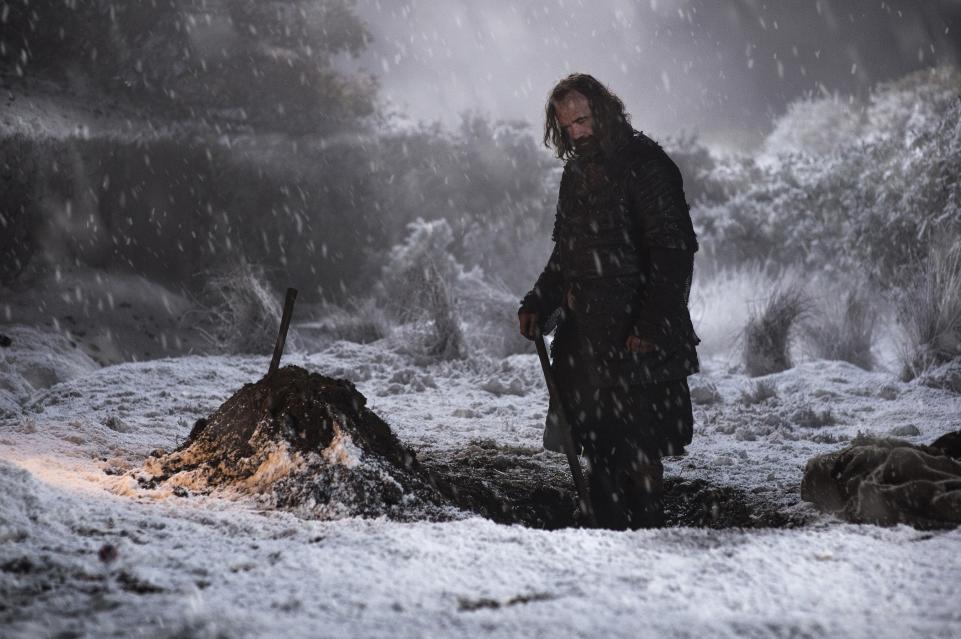
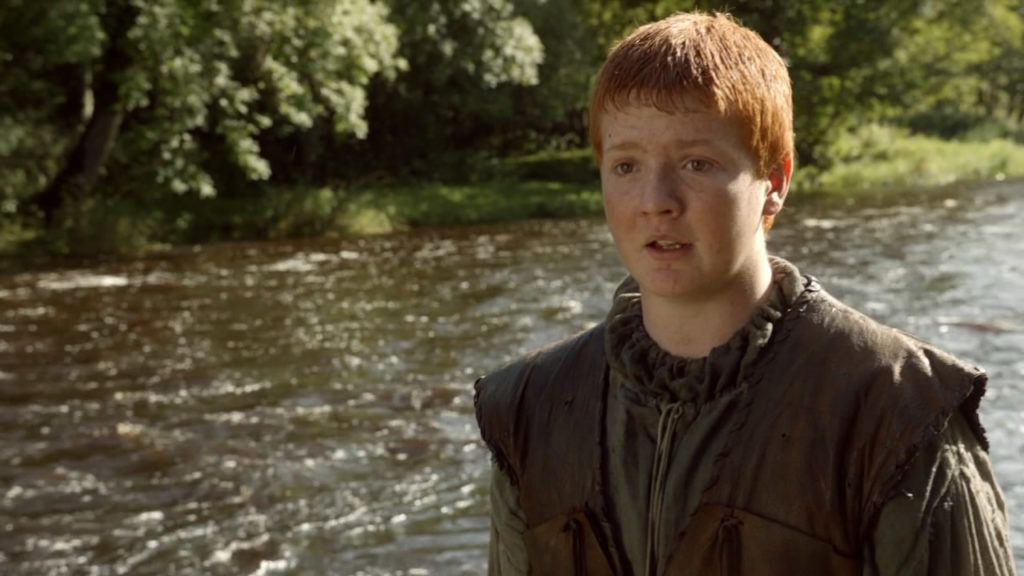
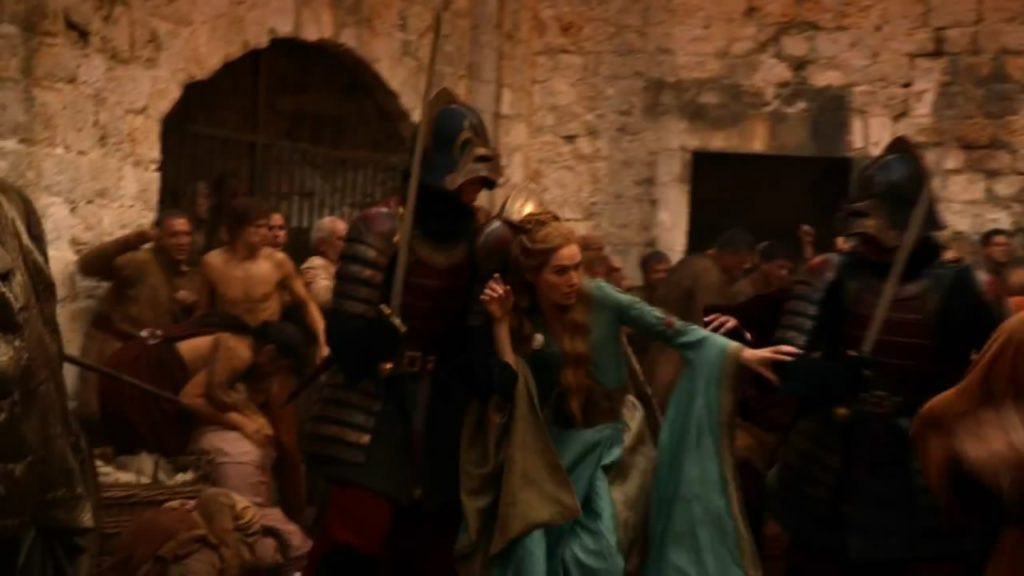

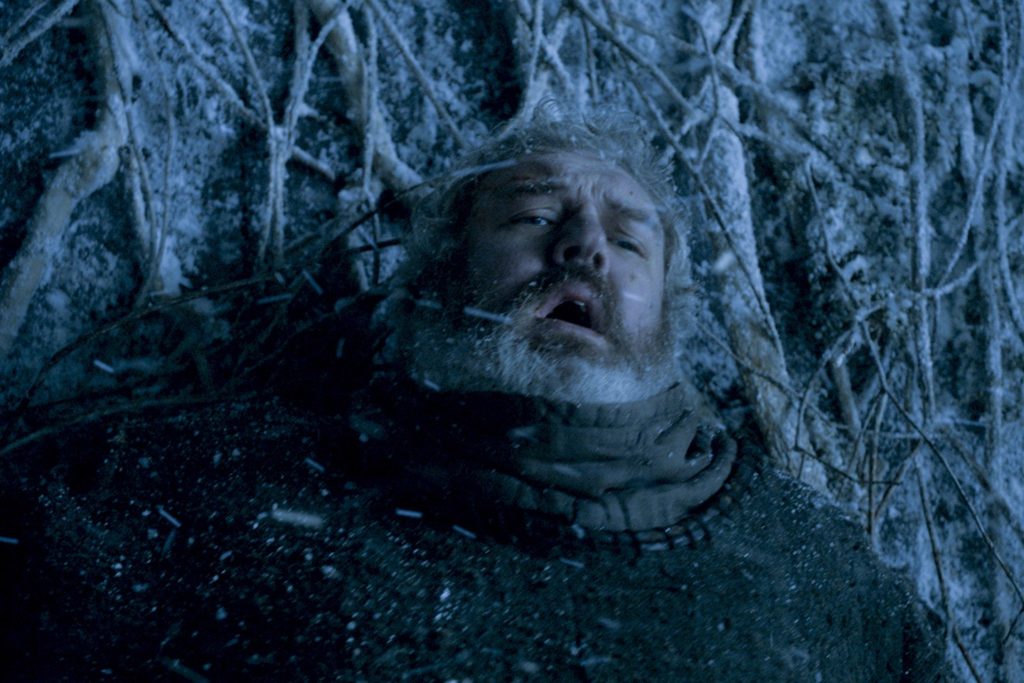
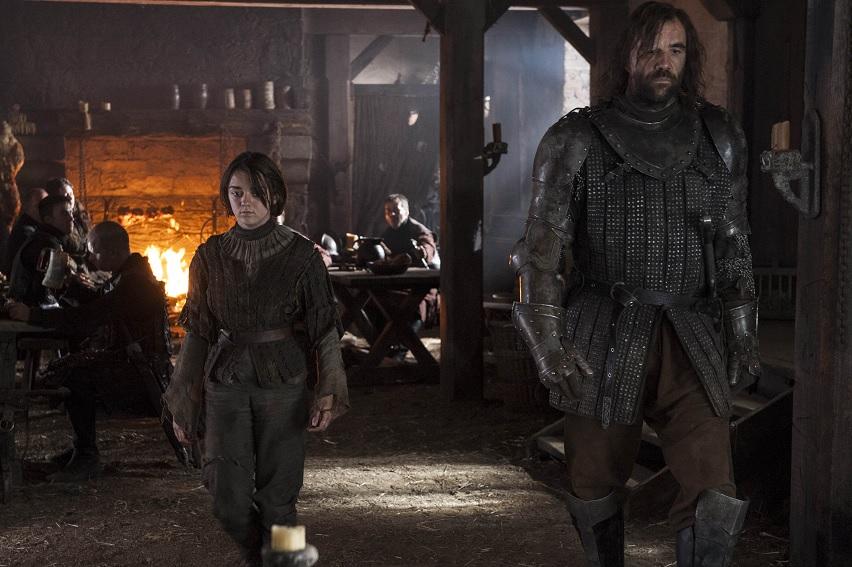
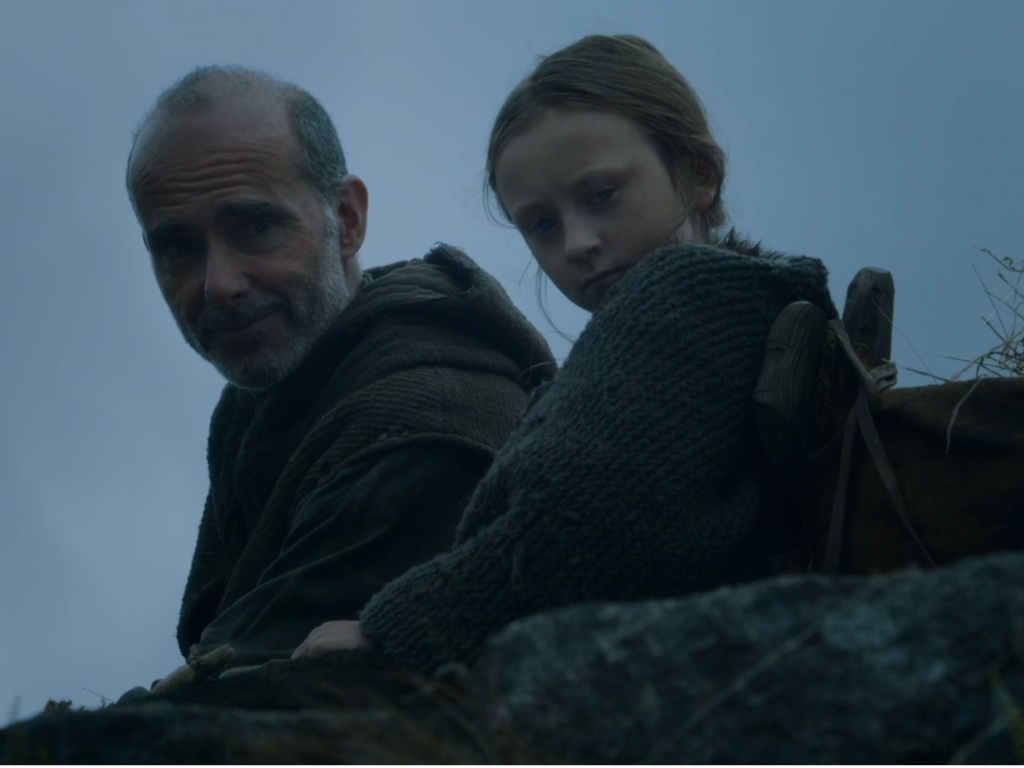
No comments:
Post a Comment